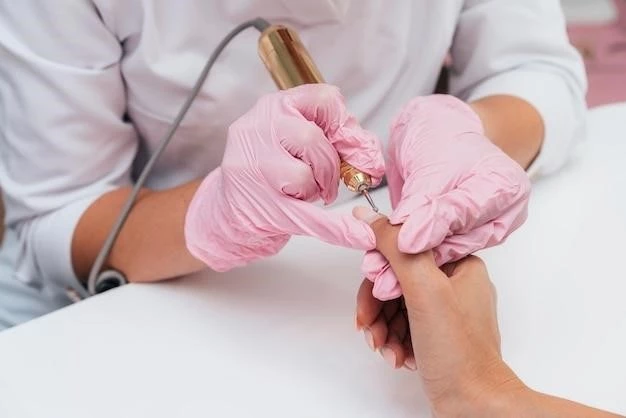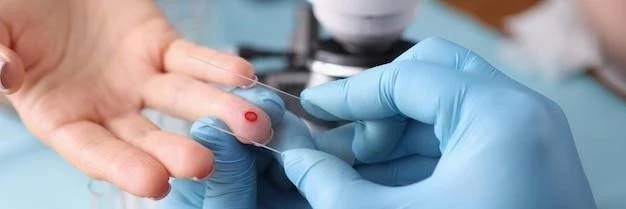Understanding Koilonychia ー Spoon Nails

Are you experiencing nail abnormalities like spoon nails or concave nails? It could be a sign of anemia due to iron deficiency. Understanding this medical condition is crucial for early diagnosis and proper care. Let’s explore the symptoms, causes, effects on health, treatments, and preventive measures.
Introduction to Koilonychia
Koilonychia, commonly known as spoon nails, is a condition characterized by abnormal fingernails or toenails with a concave shape. This condition is often associated with anemia caused by iron deficiency. Recognizing the symptoms and understanding the causes of koilonychia is essential for early diagnosis and appropriate treatment. If you notice any curved nails or changes in the nail bed, it is crucial to seek medical attention promptly. Let’s delve into the details of this nail abnormality to help you better understand its implications on your health.
Symptoms of Koilonychia
Recognizing the symptoms of koilonychia is crucial for early detection and intervention. Common signs include spoon-shaped nails, concave nails, and a nail bed that appears sunken. You may also experience brittleness, thinning, or discoloration of the nails. In severe cases, the nails can become fragile and easily break. If you notice any of these nail abnormalities, especially accompanied by fatigue or weakness, consult a healthcare professional for a proper diagnosis and treatment plan. Addressing these symptoms promptly can help prevent further complications associated with koilonychia and underlying health conditions.
Causes of Koilonychia
Koilonychia, or spoon nails, is often caused by underlying health issues, most commonly anemia due to iron deficiency. Other potential causes include hemochromatosis, Raynaud’s disease, and fungal nail infections. Additionally, genetic factors and environmental factors like prolonged exposure to chemicals can contribute to the development of koilonychia. Understanding the root cause of this nail abnormality is essential for effective treatment and management. If you suspect koilonychia, consult a healthcare provider to determine the specific cause and develop a personalized care plan to address the underlying condition.
Diagnosis of Koilonychia
Diagnosing koilonychia involves a thorough examination of the nails by a healthcare professional. Your doctor may conduct a physical assessment, review your medical history, and perform blood tests to check for iron deficiency or underlying health conditions like anemia. In some cases, a nail biopsy may be recommended to rule out other potential causes of nail abnormalities. Prompt and accurate diagnosis is essential to determine the appropriate treatment approach. If you notice any changes in your nail shape or texture, seek medical attention for a comprehensive evaluation and proper diagnosis of koilonychia.
Effects of Koilonychia on Health
Koilonychia, if left untreated, can have various effects on your overall health. The condition may indicate underlying issues such as iron deficiency anemia or other systemic diseases. Severe cases of koilonychia can lead to nail deformities, increased susceptibility to infections, and difficulties performing everyday tasks. Moreover, the emotional impact of visible nail abnormalities can affect your self-esteem and quality of life. Seeking timely medical care and adhering to recommended treatments can help mitigate the negative effects of koilonychia on your health and well-being.
Treatment Options for Koilonychia
Effective treatment for koilonychia focuses on addressing the underlying cause, such as iron deficiency anemia. Your healthcare provider may recommend iron supplements, dietary changes to include iron-rich foods, or intravenous iron therapy based on the severity of the deficiency. Additionally, proper nail care practices, including avoiding trauma to the nails and moisturizing the nail bed, can promote nail health. In some cases, treating any associated fungal infections or systemic conditions may also improve nail abnormalities. Collaborate with your healthcare team to determine the most suitable treatment plan for managing koilonychia and restoring the health of your nails.
Preventive Measures for Koilonychia
Implementing preventive measures can help reduce the risk of developing koilonychia and promote overall nail health. Maintain a balanced diet rich in iron, vitamins, and minerals to support nail growth and strength. Protect your nails from injuries and avoid prolonged exposure to harsh chemicals or excessive moisture. Keep your nails trimmed, clean, and moisturized to prevent brittleness and breakage. Regularly inspect your nails for any changes in shape or texture and promptly address any abnormalities with your healthcare provider. By practicing good nail hygiene and prioritizing your overall health, you can lower the likelihood of experiencing koilonychia.
Seeking Professional Care for Koilonychia
Timely consultation with a healthcare professional is essential if you suspect koilonychia or notice any nail abnormalities. A dermatologist or primary care physician can conduct a thorough evaluation, diagnose the underlying cause, and recommend appropriate treatment options. Do not ignore changes in your nails, as they can be indicative of underlying health issues that require medical attention. Prompt intervention can help prevent complications and promote the health of your nails. Schedule a consultation with a healthcare provider to address any concerns about koilonychia and collaboratively work towards restoring the normal appearance and function of your nails.
Conclusion
In conclusion, understanding koilonychia, or spoon nails, is crucial for recognizing and addressing nail abnormalities associated with underlying health conditions like iron deficiency anemia. By being aware of the symptoms, causes, effects on health, treatment options, and preventive measures related to koilonychia, you can take proactive steps to safeguard your nail health and overall well-being. Remember, early diagnosis and appropriate care are key in managing koilonychia effectively. Prioritize your nail health, seek professional care when needed, and adopt preventive strategies to maintain healthy and strong nails. Your nails not only reflect your health but also deserve the right care and attention to stay vibrant and problem-free.
